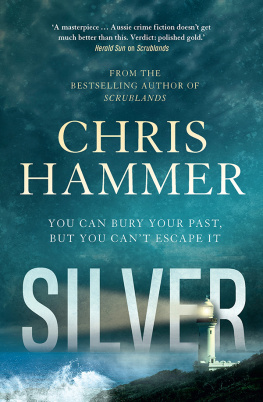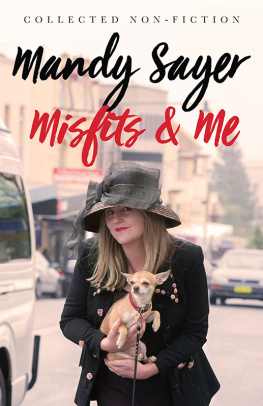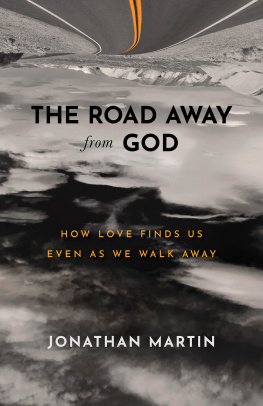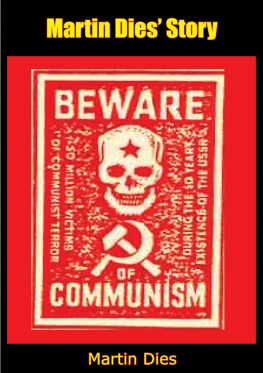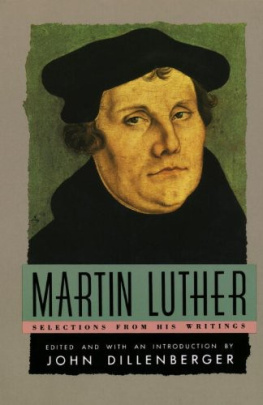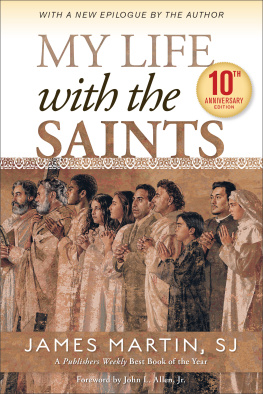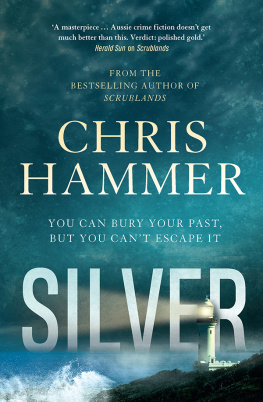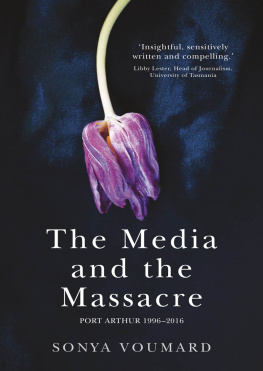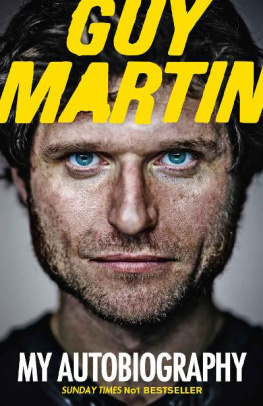
The sun slides and glances, flaring in his eyes. He cant see the ball and swings blind, hoping: hoping to connect, hoping he doesnt get out, hoping he doesnt get struck. Hoping he escapes embarrassment, just this once. So he swings, eyes closed, useless to him, as if in prayer. And somehow, by some divine whim, the bat does strike the ball. Through the wooden handle, through its perished rubber grip and unravelling string, he feels the power of the stroke, the ball collected by the very heart of the bat. He feels the spongy tennis ball flattening, compressing, then expanding, sent on its accelerating arc, launched away, as if dictated by heaven. And he feels in that moment of impact, in that instant, perfection. He opens his eyes, releasing the handle and shielding his eyes in time to see the ball, wonder at it, as it goes soaring over the wooden palings, over into the neighbours yard. A six. Six and out. Dismissed, but in glory, not in shame. No dull thud of ball into garbage bin, no raucous leg before appeal, no taunting laughter greeting a skied catch. A six. Over the fence. A heros death.
Fuck me, Martin. What a shot, says Uncle Vern.
Language, Vern, says his mother.
You hit it, you get it, says the bowler, the boy from down the street.
But Martin says nothing, does nothing, doesnt move, caught in the moment. The moment he connected. That perfect moment, caught in time.
And then.
The phone rings. Mumma, mumma, calls Enid, or Amber, one or other of the twins, the inseparable, indistinguishable twins. And his mother goes, before she can compliment him on his shot, gift him the praise he deserves. To the phone, to the call that bisects the world, that draws the clearest of lines between before and after.
Thirty-three years later Martin Scarsden drives, driving into memory, driving down towards Port Silver. Part of him is concentrating, intent on the road, navigating the hairpins as he guides the car down the escarpment; part of him is lost in the past, lost in that perfect day, the day when fate flared so brightly and so briefly, the same day it dropped a curtain upon them, like the end of a play. This day the sun is filtered, flickering through the rainforest canopy, strobing. Squinting, he cannot see the ocean, but senses it, knows that should he pull over, if there were space on this narrowest of roads to stop the car, he would be able to see it: the Pacific. Its there, beyond the trees, the great blue expanse. Can you see the sea? his father asks him through the years, just as he asked it each and every time they descended through these hairpin corners. See the sea, get home free, hed say with a laugh. Martin never could see it, though; never. But a time had come when he hadnt needed to, he had come to know it was there, beyond the bottom of the escarpment, beyond the dairy farms, the cane fields and the river flats, past the fishing harbour and the holiday shacks and the long white sands. He couldnt see it, but he could feel it.
And so it is on this early autumn day, as he winds the car down through the spotted gums and the cabbage tree ferns, the palm trees and the staghorns and the cedars trailing vines, bell-birds chiming. He can feel it in the air, moist and cool becoming moist and warm as he descends, ears popping, towards the ocean, the tugging dryness of a drought-ravaged inland left the far side of the coastal range. And in the distance, still unseen but already imposing itself: Port Silver. The land of his youth, revisited.
Vern! Vern! she cries, voice infused with some unknown emotion. Martin! Girls! Hes climbing back over the fence, grey wood splintered and dry to the touch, ball in hand, his glorious dog-chewed trophy, when his mother bursts out through the screen door, laughing and crying at the same time, emotions sweeping her along like an incoming tide. We done it. Jesus Christ. We won the bastard!
Martin looks to his uncle, but sees Verns own incomprehension at his sisters unprecedented swearing.
Hilary? prompts Vern.
The lottery, Vern. The fucking lottery! Division one!
Martin leaps from the fence into a yard unfamiliar, ball forgotten, bat abandoned. The lottery. Theyve won the lottery. The fucking lottery. Vern hugs one or other of Martins sisters, she hugs him back, happy and uncomprehending, then they are dancing, all five of them: his mother, the twins, himself and Uncle Vern, dancing on the Victor-mowed wicket as the boy from down the road returns scampering back down the road, wide-eyed and open-mouthed, carrying the news before him like a southerly: the Scarsdens have won division one. The fucking lottery.
The escarpment joins the plain, the rainforest ends and the dairy farms begin; PORT SILVER 30 KILOMETRES states the sign. Martin Scarsden returns wholly to the present. Port Silver, its ghosts sheltering from the iridescent sun, but awaiting him nevertheless. Port Silver. For pitys sake, why had Mandy chosen this town of all towns, his home town, to restart their lives? He crosses the old bridge over Battlefield Creek, the stream flowing along the base of the range, the boundary between the natural world of the escarpment and the imposed geometry of the dairy farms and cane fields. Hes about to shift into a higher gear in preparation for the faster roads of the flatlands when he sees her: the hitchhiker.
Her legs flash in the subtropical sun beneath denim cut-offs. Theres a tank top, a bare midriff, her thumb casually extended. A foreigner then, if shes using her thumb. Her hair is out, and so is her smile, broadening as he pulls onto the shoulder: a gravel clearing at the juncture between the hills and the plain, near the turn-off to the sugar mill. Even before he stops, he sees her companion, his hair dark and long, sitting with their packs, back from the road, out of the sun, out of sight of approaching motorists. Martin smiles; he understands the deception, takes no offence.
Port Silver? asks the young woman.
Sure. Its not as if the road goes anywhere else.
Martin uses his key to open the boot, the internal release of his old Toyota Corolla long broken. The man hefts the backpacks effortlessly, drops them into the cavity, closes the lid. Martin can see his arms, tattoos on sculpted flesh, the musculature of youth, wrapped in the smell of tobacco and insouciance. The young woman climbs in beside Martin; the man gets into the back seat, shoving Martins meagre possessions to one side. She smells nice, some sort of herbal perfume. Her companion removes his sunglasses and offers a grateful smile. Thanks, man. Good of you. He reaches over the seat, gives Martin a powerful handshake. Royce. Royce McAlister.
Topaz, says the girl, replacing her companions hand with her own. And you are? She leaves her hand in his for a flirtatious moment.
Martin, he replies, grinning.
He starts the car, guides it back onto the road, childhood memories banished.
You live in Port Silver? asks Topaz.
No. Not for a long time.
Were after work. Her accent is American. Heard theres plenty up here this time of year.
Maybe, says Martin. Holiday peak is over, kids back at school, but you might get lucky.
What about fruit picking? Its Royce, leaning forward, his accent unmistakably Australian, broad and unpretentious. Greenhouses?
For sure, says Martin. But its harder work than waiting at a cafe or catering for tourists.
I need it for my visa, says Topaz. I work for three months outside the cities, I get another year in Oz. We took the overnight train up to Longton. Word in Sydney is theres plenty of work up this way.
Possibly. I wouldnt know, says Martin. Back when he was a child the greenhouses up the river were full of migrants, itinerant labourers gaining their first foothold in their new country. Nowadays foreign backpackers are supposedly the workforce of choice.
Next page
